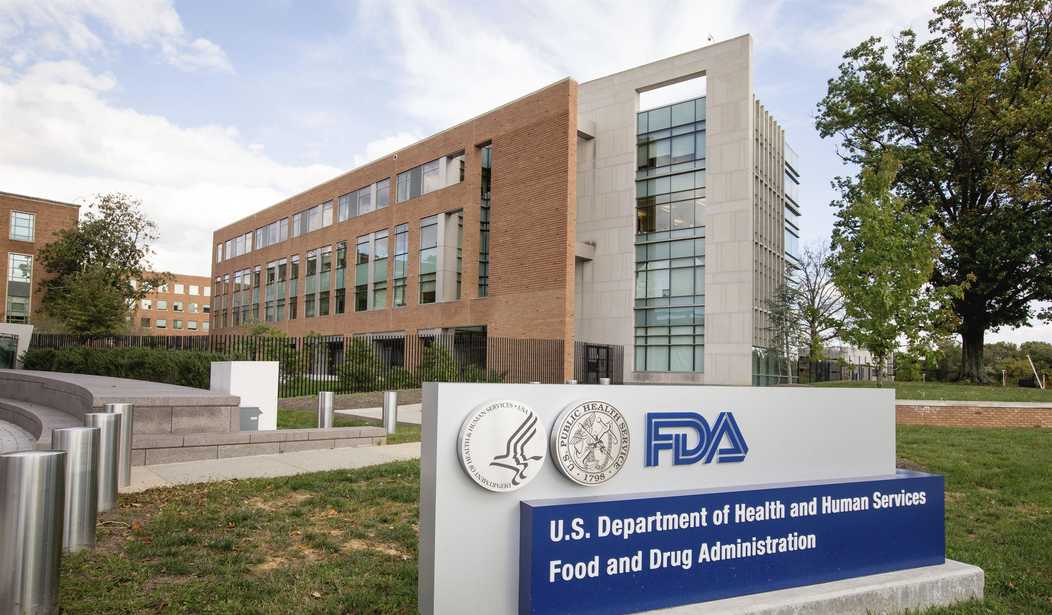We need new drugs to fight COVID-19 and other diseases. But our government's approval process makes that too hard.
This year's pandemic got regulators to say they'll speed the approval process. The FDA adopted Emergency Use Authorization to speed up approval of some tests, medical equipment and ventilators.
But that's not enough.
I know about the FDA's rules because my older brother, Dr. Thomas Stossel, discovered something that might save a lot of lives.
Doing medical research at Harvard, he found a protein in our blood that helps reduce excess inflammation. He named the protein gelsolin.
Some inflammation is useful. Our own immune system creates it to fight off diseases.
But excess inflammation kills.
With COVID-19, "what usually kills the patient is not the virus," explains Dr. Mark DiNubile in my new video. "As the patients get sicker, often the virus is disappearing. It's the over-exuberant, excessive, immune reaction that's destroying the lung."
DiNubile was once my brother's student and partner. Now, he speaks for Tom because, several months ago, Tom died of a sudden heart attack. DiNubile will carry on Tom's work.
So will I. Suddenly, I'm an investor and on the board of their biotech company, BioAegis, which hopes to give supplemental gelsolin to people with diseases like pneumonia, sepsis and the coronavirus.
When we're very sick, gelsolin levels go down, and that often leads to deadly outcomes. But we're not helpless. BioAegis found a way to manufacture extra gelsolin. Now, the company hopes to get the FDA's permission to give some to coronavirus patients.
BioAegis already gave the protein to animals infected with pneumonia. They got good results. Animals that would have died, lived. "It also improves what their lungs look like," said DiNubile.
Recommended
Improved lung function should certainly help human coronavirus patients, he adds, "allowing them to get off the respirator, go back home and, hopefully, live a normal life."
After BioAegis' successful animal tests, they did safety tests on people, giving hospital patients big doses of gelsolin. The patients did fine.
That was expected. Gelsolin is a natural protein, after all. It's already in our blood.
Now BioAegis is raising more money to fund tests that we hope will convince the FDA to allow us to restore gelsolin levels in COVID-19 patients -- and other very sick people.
But getting government approval takes so long!
It also costs, on average, hundreds of millions of dollars.
BioAegis and its partners already spent $50 million researching gelsolin. Yet, we still seem to be years away from getting permission to offer it to people.
I understand that the FDA's job is to protect us.
But I know some sick people would be willing to try the drug, even if it were risky, if it might save their life.
I asked DiNubile, rudely: "Why do you have to beg for permission? Just find some sick people who are willing to try something!"
"We legally cannot do that," he responded. "The first rule of medicine is: Do no harm. In the pandemic of 2009, a flu drug was approved that turned out not to work well. So, there is a possibility that you could subject patients to a risk -- for no gain."
But all drugs involve risk. I say: Leave it up to individuals, once we're adults, to make our own choices about those risks.
"Because so many diseases are caused by excess inflammation," says DiNubile, "Gelsolin's potential benefit is enormous. This could be a miracle drug like antibiotics were."
I sure hope he's right, and that BioAegis succeeds in bringing gelsolin to patients.
But the odds are against us. Most new drugs never get to the point where our government allows them to be given to patients.
Yes, of course, we want to make sure new drugs are safe.
But in dire situations like a pandemic, there ought to be a faster way to get promising treatments to people who might benefit.
Especially treatments like gelsolin that have been shown to be safe.
Given a chance, my brother's discovery -- and others like it -- could save a lot of lives.
John Stossel is author of "Give Me a Break: How I Exposed Hucksters, Cheats, and Scam Artists and Became the Scourge of the Liberal Media." For other Creators Syndicate writers and cartoonists, visit www.creators.com.

























Join the conversation as a VIP Member